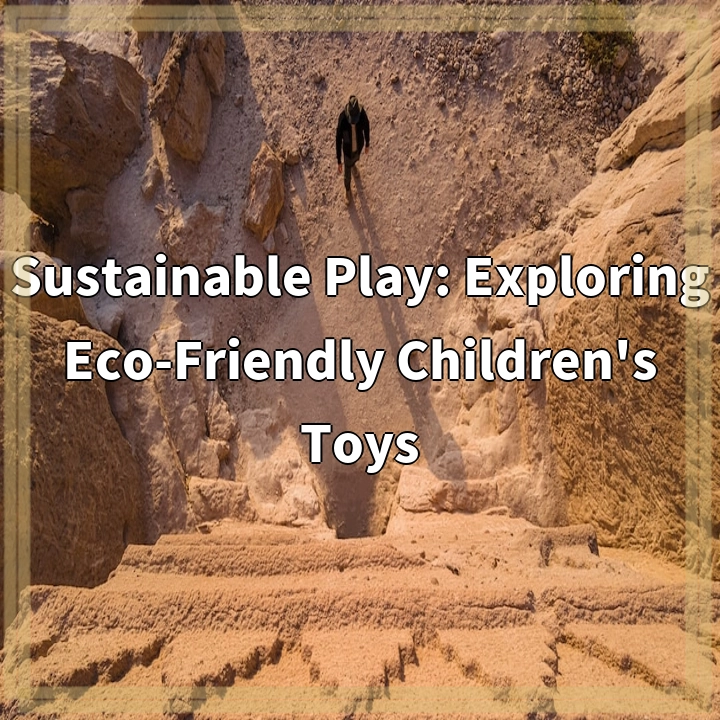Physical Address
304 North Cardinal St.
Dorchester Center, MA 02124
Physical Address
304 North Cardinal St.
Dorchester Center, MA 02124

Sustainable play refers to the concept of providing children with toys that are environmentally friendly, safe, and socially responsible. It involves a shift in the way we approach toy production and consumption, focusing on sustainability throughout the entire lifecycle of a toy.
One of the major problems associated with conventional children’s toys is the excessive use of plastic, which contributes to the global plastic waste and pollution crisis. Most plastic toys are made from non-biodegradable materials, leading to long-lasting waste that ends up in landfills or pollutes our oceans.
Many conventional toys contain harmful chemicals such as phthalates, lead, and bisphenol-A (BPA), which can be harmful to children’s health. These substances have been linked to developmental issues, hormone disruption, and other adverse health effects.
The production of conventional toys often involves the extraction of non-renewable resources, deforestation, and excessive energy consumption. Additionally, the manufacturing processes often lack transparency and ethical practices.
Parents and caregivers may not be aware of the impact that children’s toys can have on the environment and their health. There is a lack of education and information regarding sustainable alternatives, making it challenging for individuals to make informed choices.
One of the key solutions is to prioritize toys made from biodegradable and natural materials such as wood, organic cotton, bamboo, and plant-based plastics. These materials are more sustainable and have a lower impact on the environment.
Opt for toys that are free from harmful chemicals, including phthalates, lead, and BPA. Look for certifications such as ASTM F963 or the European Union’s EN71, which ensure that toys meet safety standards for children.
Choose toys from companies that practice responsible manufacturing processes. Look for brands that prioritize fair labor practices, minimize waste during production, and use renewable energy sources.
Reduce waste and extend the lifecycle of toys by opting for secondhand or upcycled toys. Thrift stores, online marketplaces, and toy libraries are great places to find gently used toys that still provide endless hours of play.
Spread awareness about the benefits of sustainable play through blog posts, social media, and local community initiatives. Help parents and caregivers understand the importance of choosing eco-friendly toys and provide them with resources to make informed decisions.
Sustainable play involves providing children with environmentally friendly, safe, and socially responsible toys. Conventional children’s toys contribute to the global plastic waste and pollution crisis. Plastic toys are often made from non-biodegradable materials, leading to long-lasting waste in landfills and oceans. Many conventional toys contain harmful chemicals such as phthalates, lead, and BPA. These chemicals can have adverse health effects on children, including developmental issues and hormone disruption. The production of conventional toys involves the extraction of non-renewable resources. Conventional toy manufacturing processes often lack transparency and ethical practices. Parents and caregivers may not be aware of the impact of toys on the environment and children’s health. There is a lack of education and information regarding sustainable alternatives to conventional toys.
One of the key solutions is to prioritize toys made from biodegradable and natural materials such as wood and organic cotton. Toys made from plant-based plastics are more sustainable and have a lower environmental impact. Non-toxic and safe toys, free from harmful chemicals, should be chosen for children. Certifications such as ASTM F963 and EN71 ensure that toys meet safety standards. Supporting companies with ethical and transparent manufacturing processes is important for sustainable play. Fair labor practices, waste minimization, and renewable energy sources should be prioritized by toy brands. Secondhand and upcycled toys can reduce waste and extend the lifecycle of toys. Thrift stores, online marketplaces, and toy libraries are great sources for gently used toys. Spreading awareness about sustainable play through blog posts and social media is important. Local community initiatives can help educate parents and caregivers about eco-friendly toy choices. Sustainable play benefits the environment and children’s health.
Prioritizing natural materials in toy production reduces the use of non-renewable resources. Non-toxic toys promote the well-being and safety of children. Supporting companies with ethical manufacturing practices ensures fair treatment of workers and reduces environmental impact. Secondhand toys promote the circular economy and reduce waste.
If you’re wondering where the article came from!
#